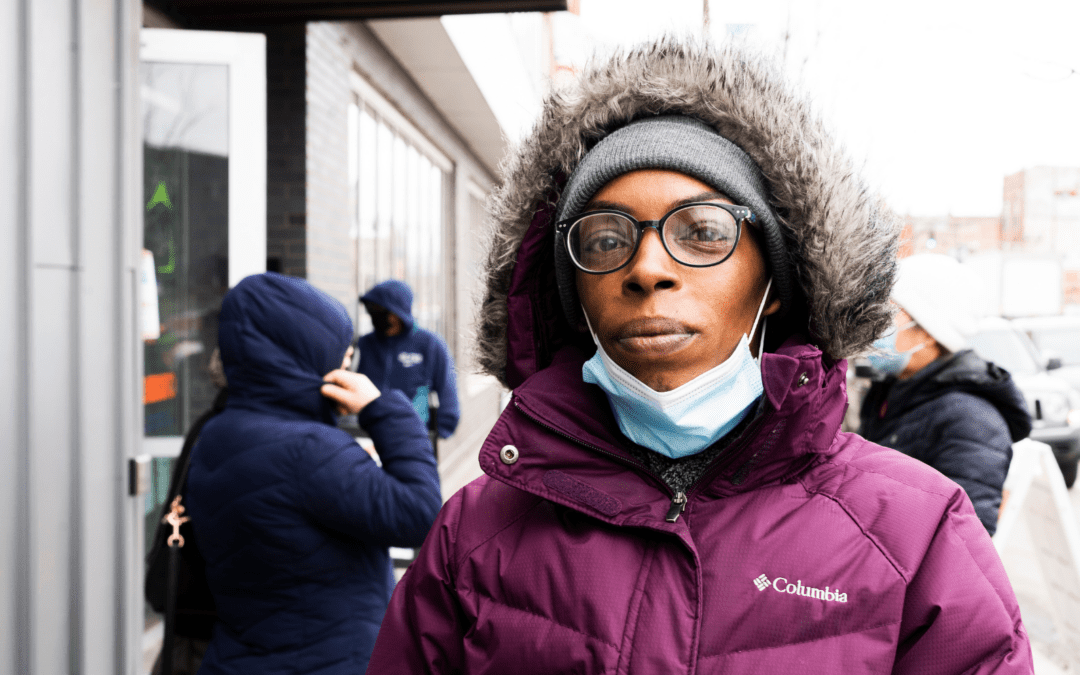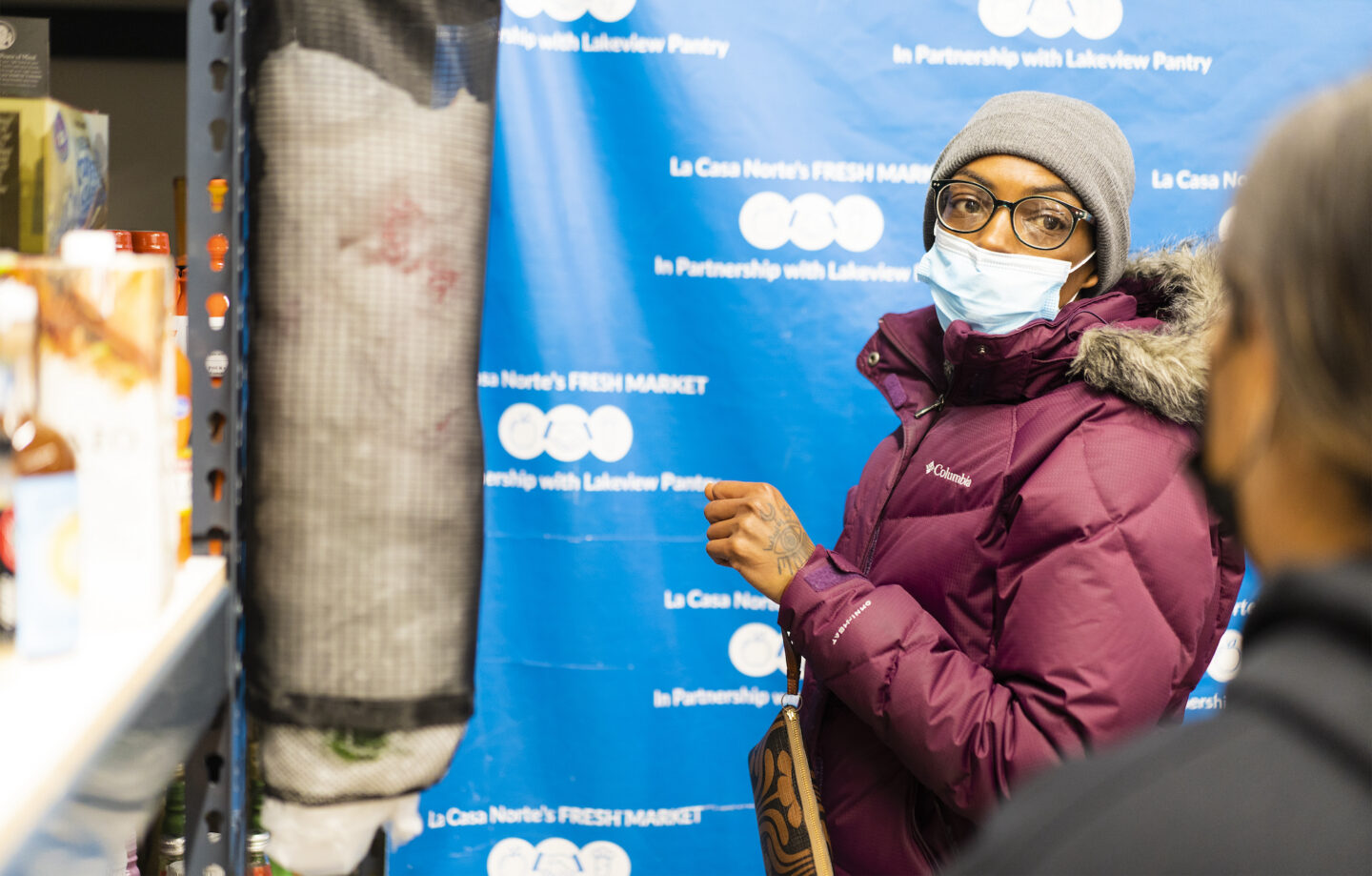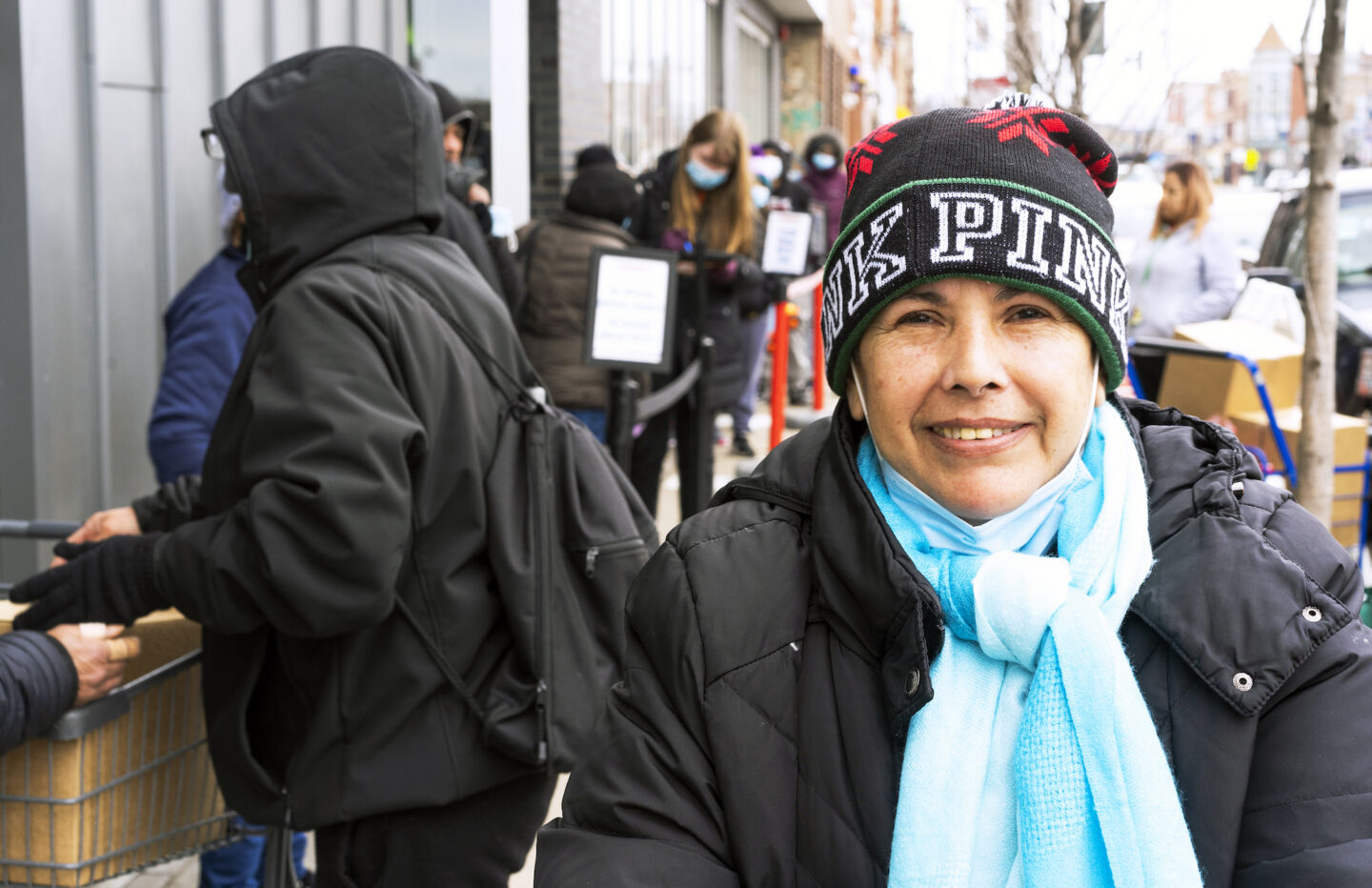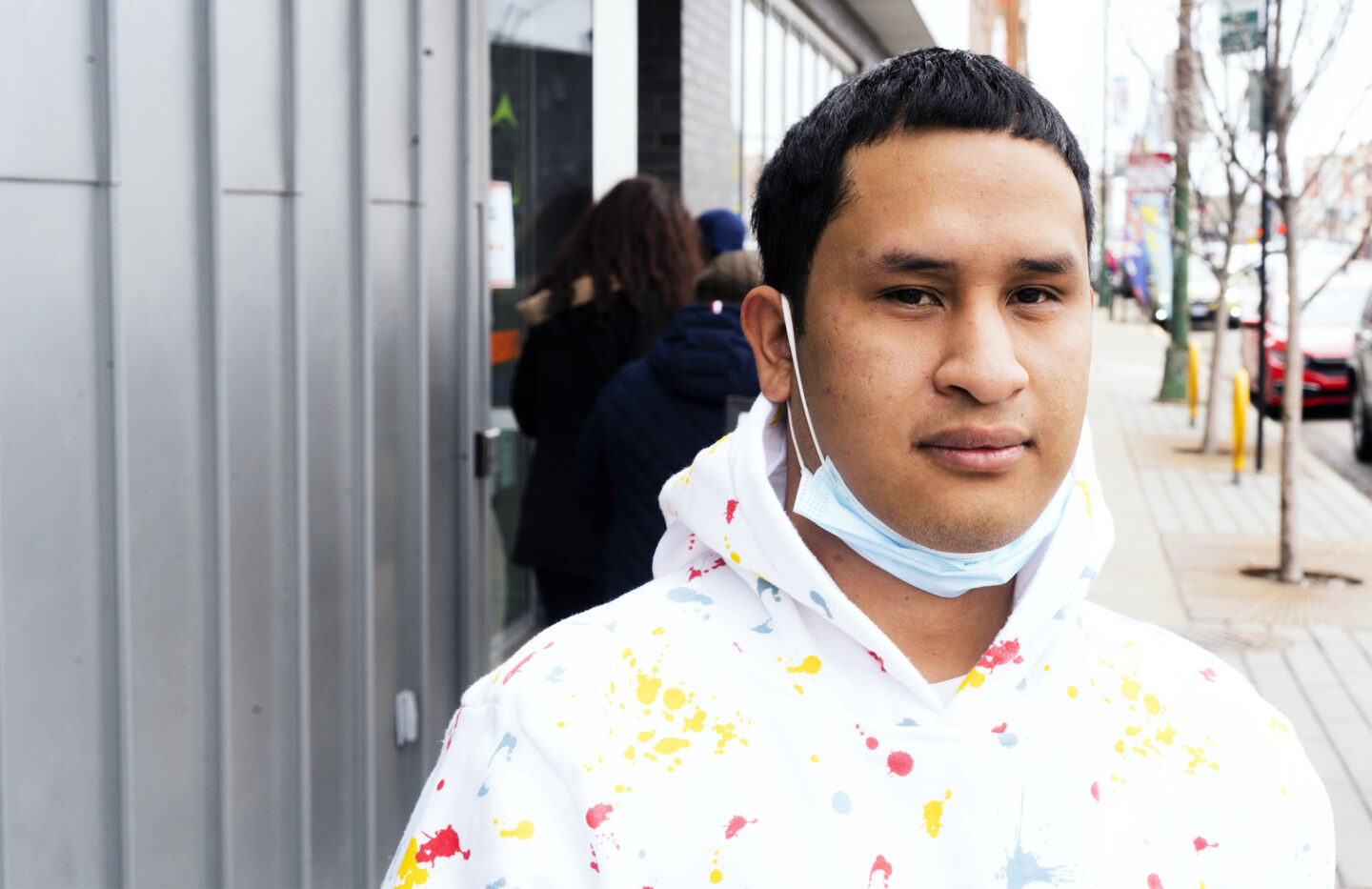(All photos by Mateo Zapata for Nourishing Hope)
About a year and a half ago, Jonika Jackson moved to Chicago with her two children to start a new life.
In doing so, she left behind heartache and hardship in Pennsylvania, where she’d been living in a domestic violence situation, she said. She’s also still reeling from the death of her mother.
“When I got here, it was like, I need help but I’m going to ask for very specific help,” Jackson said. “It’s really working, but I still need a little help.”
She’s found a source of nourishment at El Mercadito, Nourishing Hope’s food pantry partnership with La Casa Norte, where service levels have more than doubled from a year ago. The dramatic increase is a result of several factors, including the inflation-related spike in food prices, recent influxes of immigrants to Chicago and increased awareness of the food pantry as a community resource.
Unfortunately, another challenge looms as the emergency allotment for Supplemental Nutrition Assistance Program (SNAP) benefits ended March 1. State officials say the reduction for SNAP recipients will range from $95 to $255 a month. It’s the largest ever dropoff in SNAP benefits, according to national experts.
Jackson and her children will receive about $160 less in monthly benefits, she said.
“It’s going to mean a whole lot less food,” Jackson said as she waited her turn at El Mercadito. “What it means is less fruits and vegetables.”
“My money goes so fast,” Jackson said. “Being able to come to a place like this really saves me.”
On a recent windy February afternoon at El Mercadito, several people were willing to share their stories, which were interwoven with common themes of economic hardship — but also marked by distinct challenges and hopes.
Take Librada Aldredondo, for example, whose sky blue scarf provided some color on an otherwise gray day. Warm and welcoming in her demeanor, the 60-year-old grandmother lives with a disability called Cushing’s Syndrome, which makes it too painful to work.
“I have to visit El Mercadito because we don’t have much,” Aldredondo said. “The truth is that there isn’t much money for anything. There are a lot of things that we can’t buy right now.”
“Yo quiero decir esto: Gracias por la comida, gracias.”
“I want to say this: Thank you for the food. Thank you.”
Many of the people who frequent El Mercadito are Latino immigrants living on Chicago’s West Side. Some like Aldredondo have lived in Chicago for many years; others are newer to the city and trying to build a new home here.
Gerson Zetino, 18, immigrated from Guatemala just two years ago, part of a massive immigration movement from Guatemala because of poverty and agricultural stress associated with climate change. He’s finishing high school, but living alone. He turns to El Mercadito for help with food.
“I’m almost finished, I’m a senior,” Zetino said. “I’m not sure what I want to do after, but … I want to work, maybe in construction.”
He has longer-term dreams, too.
“Yes, I’d like to study medicine, like to be a doctor or a nurse, maybe,” the young man said.
For Robert Thurmond III, the end of the emergency SNAP benefits presents another stressful setback as he seeks to stabilize his life after having a stroke in 2020.
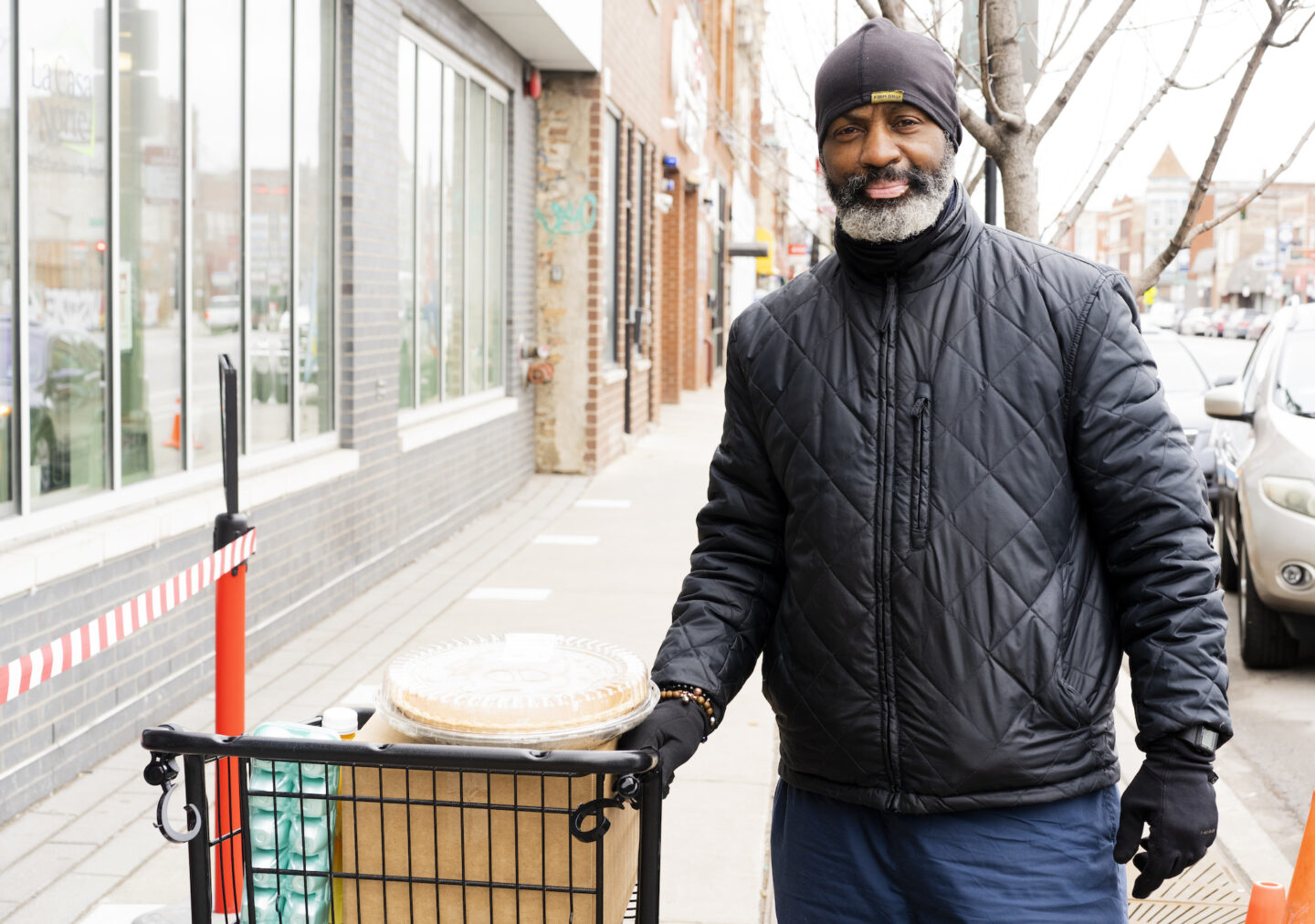
Robert Thurmond III, 58, is among those who will lose grocery buying power with the end of the emergency SNAP benefits.
Before his health crisis, he worked in manufacturing. Now he’s unable to work and still trying to get connected to disability benefits, which he described as a long and frustrating ordeal. Beginning this month, he expects to receive $95 less in SNAP benefits per month once the emergency benefits — a 34 percent reduction in his total benefits.
“I don’t know why they’re doing it,” Thurmond said of the SNAP cuts. “Families need it. A lot of people don’t have anything but that.”
For Jackson, the single mother of two children from Pennsylvania, it’s been a tough transition to Chicago, she said, but things have been looking up recently.
She beamed as she talked about a recent job interview that went well. In July, she and her kids moved into their own place in West Humboldt Park. She’s received help from a Catholic Charities program for domestic violence survivors.
In time, she hopes to be able to help others going through hard times.
“I’m going through some things,” she said, “but other people are going through a lot worse. I want to get to where I can inspire other people.”
(Jen Allman contributed to the story.)
